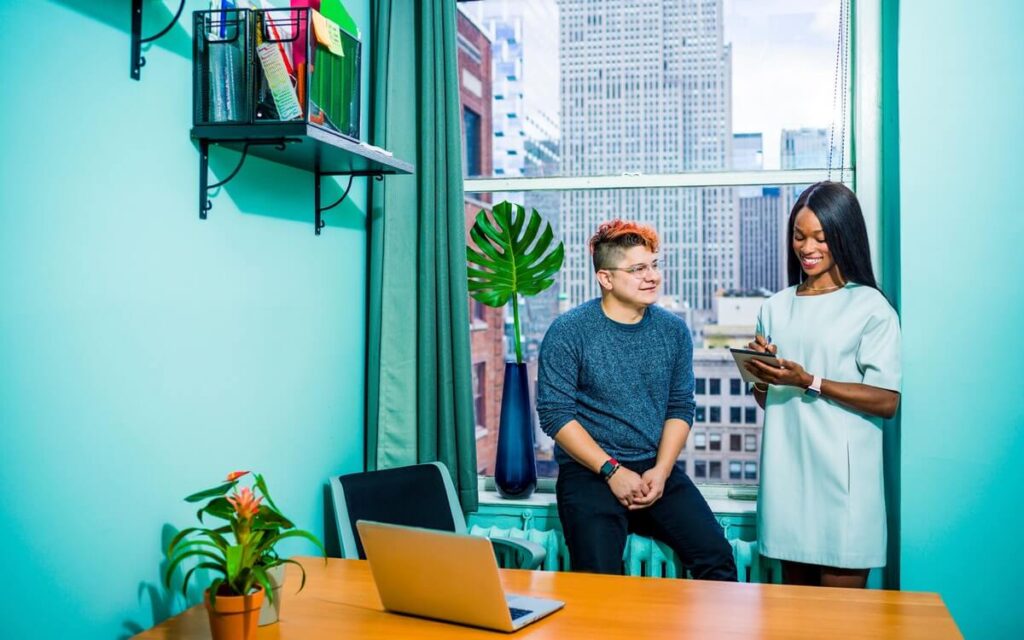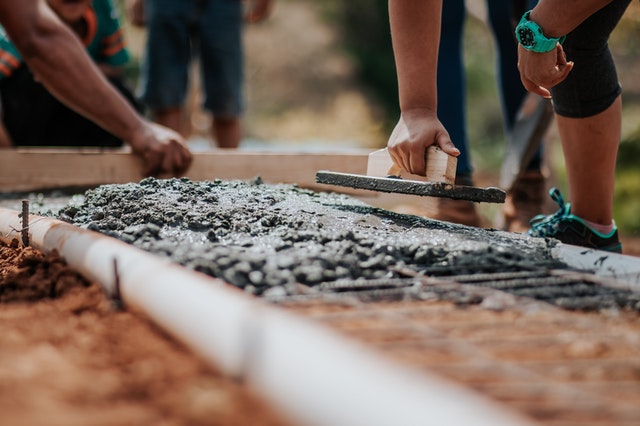
February is Funding & Enterprise Supplier Development Month on SME South Africa. Follow the conversation here for all our coverage.
Getting into the right Enterprise Supplier Development (ESD) Programme has the potential to be life changing for a business.
To help you find the right one, we have compiled some of the country’s biggest ones – from retail and mining to transport and financial services.
1. SAB (Manufacturing)
SAB’s enterprise supplier development programmes aim to create a diversified and inclusive supply chain by supporting the growth and creation of black-owned suppliers through business development support and funding.
They do this through the SAB Accelerator which focuses on supporting black-owned suppliers in need of business development and technical support to grow further into the SAB supply chain and the SAB Thrive Fund, a fund focused on supporting existing black-owned suppliers in need of capital to grow.
Both programmes require businesses to be black-owned, black women-owned, or black youth-owned. They should already be servicing the SAB supply chain at the time of application and are looking to grow their businesses, or have the potential to join the supply chain by solving a supply chain problem. This includes manufacturers who can provide a raw material, an ingredient or service that helps SAB make beer, says Sanjay Premraj, Supplier Development director in an interview.
2. Woolworths (Retail)
Woolworths’ Enterprise Supplier Development programme primarily supports emerging SMEs in Woolworths’ supply chain. According to their website, the aim is to lift the barrier of entry into their supply chain for small, medium, black and black women-owned enterprises.
De Fynne Nursery, a small black woman-owned agribusiness is one of the beneficiaries of the programme. They supply the retailer with indigenous plants, including fynbos and fruit trees.
3. Sasol (Energy and Chemicals)
Sasol’s Enterprise Supplier Development programmes work to develop the SME sector and diversify their supplier pool.
They provide technical and business development support through mentoring and coaching as well as loan funding to qualifying SME suppliers through the Sasol Siyakha Enterprise and Supplier Development Fund (“Sasol Siyakha Fund”).
In 2016 they launched a R53 million Sasol Business Incubator facility which was developed in partnership with the Department of Trade and Industry, located in Sasolburg, through which they provide startup SMEs with business development support, funding solutions, infrastructure and offices.
The incubator helps black industrialists produce and manufacture goods that can be consumed and used locally, as well as exported, Trade and Industry Deputy Minister Mzwandile Masina said at the business incubator launch in 2016.
Areas of focus for the business incubator are small scale manufacturing, chemical and cosmetic manufacturing, plastics manufacturing, mechanical fabrication and services contributing to the business ecosystem.
4. Massmart (Manufacturing)
The Massmart Supplier Development programme provides opportunities for small and medium manufacturing businesses who are potential suppliers to Massmart and its retail divisions, including Builders, Game and Makro.
Last year 33 participants were chosen for the programme with products ranging from chefwear, cooking gel and instant noodles to bath tubs, adhesives, cooler-boxes and paint.
Reapso SA, a 100% black female-owned company operating from a factory in Selby, Johannesburg is one of the programme’s beneficiaries. Through the programme Reaspso has replaced an international supplier for all chefwear sold in Makro stores.
5. Telkom (ICT)
Telkom launched its ESD programme, Telkom’s FutureMakers, in 2015. The programme supports strategic startups and existing small businesses as well as other entrepreneurial ventures aligned to the technology sector and the Telkom value chain.
In 2016 the company revealed that the goals for the programme included creating 80 internet cafés in disadvantaged areas across South Africa, supporting 15 third-party distributors, and to make investments of up R30 million.
6. Murray and Roberts (Construction and Mining)
Murray and Roberts’ enterprise development programme aims to sustain and grow many smaller and developing contractors, according to Engineering News.
Through their ESD programme they have assisted and trained businesses like Letsatsi Civil Construction, Taucon Civils. They have also trained women-owned companies like Stephina Construction, which has been a part of its ESD programme since 2000, according to Engineering News.
7. Pick n Pay (Retail)
Pick n Pay’s #PnPBoostYourBiz competition forms part of the retailer’s Enterprise and Supplier Development efforts.
The competition is open to all entrepreneurs and small businesses to pitch their idea, product or service to Pick n Pay, with the aim of listing with the retailer and receiving business support.
Selected SMEs receive a “Total Business Package” which includes retail listings, business support, and business mentorship in becoming an accredited service provider to Pick n Pay. They are also presented with the opportunity to list their product or service with Pick n Pay nationwide.
7. Sanlam (Financial Services)
The Sanlam Enterprise Supplier Development programme in partnership with the Association for Savings and Investment South Africa (ASISA) aims to stimulate the development and economic growth of black-owned SMEs which are aligned to their supply chain.
The programme offers business development support, investment support and access to markets.
“A selection process that is aligned with procurement helps to stimulate the development and growth of black-owned small businesses,” they state on their website.
8. Absa Bank (Financial Services)
In 2015 Absa Bank and the Royal Bafokeng Nation launched a Supplier Development programme in Phokeng, North West. The initiative, according to the bank, is aimed at SMEs in the province.
The programme provides small businesses access to procurement opportunities in the supply chains of the Royal Bafokeng Nation and other corporate and government institutions in the province. According to Absa, local companies have committed to procuring goods and services worth R400-million from SMEs, and it is expected that 300 small businesses will benefit from this commitment.
9. Afrisam (Construction)
According to their website, Afrisam’s Enterprise Supplier Development programme works to develop and train B-BBEE suppliers that will include national, regional and community-based suppliers.
The goal is to identify SMEs within the construction sector and to develop them to be able to trade with AfriSam and other companies, according to their website.
10. Barclays Africa (Financial Services)
The Barclays supply chain development programme provides entrepreneurs within the financial sector access to business opportunities within Barclays Africa, and their corporate and business bank partners.
In addition to this, they support fintech innovation and collaboration through RISE, their global innovation programme.
11. Volkswagen (Manufacturing)
Ntinga Project is an initiative by Volkswagen South Africa (VWSA) to identify and develop black-owned suppliers within motor manufacturing and to provide them with a supplier contract.
In 2017, five suppliers were awarded a supply contract that will come into effect once they have successfully completed an 18-month training and mentorship programme, according to a IOL report. They include: Bona Once Bona Twice (bracket fender), Jamsco Automotive Assemblies (intermediate piece), KPL Die Casting (reinforcement ring), Production Logix (earth cables) and Thekwini Wire and Fasteners (hanger brackets).
12. Sun International (Tourism & Hospitality)
The Sun International Enterprise Supplier Development programme focusses on black-owned SMMEs within their tourism supply chain, including food and beverages, casino and gaming to logistics and marketing.
According to their website, to apply for the programme business are required to have been trading for a minimum of two years, and should provide a product or service directly related to the Sun International supply chain.
13. Nedbank (Financial Services)
The programme, which launched in 2015, aims to support black-owned businesses the bank believes they could help make more sustainable and successful.
Beneficiaries include Monabo, a cleaning and hygiene company owned by Bongiwe Monakedi, ‘green’ cleaning and hygiene company, through the programme. CIPS reports that she signed a contract with the bank for over R10m (£475,900) in February 2015.
15. Imperial Enterprise (Transport)
Imperial launched their Sinawe programme together with the Awethu Project, a specialist SME investment company that works with the group to accelerate the growth of black-owned businesses and startups in South Africa.
Chief strategy officer Cobus Rossouw said: “The partnership has resulted in the creation of an Enterprise and Supplier Development (E&SD) Fund that will transform B-BBEE compliance from a cost-centre to a profit-centre, while ensuring that deserving suppliers within the Imperial value chain have an opportunity to grow their businesses and access new opportunities.”
16. Tsogo Sun (Tourism & Hospitality)
As part of its efforts to uplift and support businesses in all industries within tourism and hospitality, Tsogo Sun hosts an annual Supplier Showcase, offering suppliers an opportunity to showcase their products and services nationwide.
The products and services range from accommodation and cleaning services to arts and crafts, as well as catering, spa treatments and gardening services, according to Business Events Africa.
17. Shoprite (Retail)
Shoprite has a range of programmes aimed at growing their supply chain. One such programme according to the website is the group’s Homemade programme.
According to the Shoprite website, the programme was launched to target “individuals who have a product to sell might not initially have the means to register as a national supplier and through the Homemade project they can approach their local store manager. We coach these emerging suppliers through each stage of their development journey with practical advice”.
18. MTN (ICT)
In 2015 MTN launched its supplier development programme – hosted in partnership with local skills and training provider New Generation Mindset. The programme saw 60 ICT startups participate in a three-year programme, according to a Disrupt Africa article.
The aim of the programme is to empower young entrepreneurs to become the ICT suppliers of MTN and the country’s leading companies.
19. Astron Energy (formerly Chevron South Africa) (Manufacturing)
In 2016, Chevron South Africa, which markets its fuel under the Caltex brand, launched an Enterprise and Supplier Development programme aimed at improving access to its value chain for black-owned businesses, according to Engineering News.
The initiative is open to businesses that are 51 percent black-owned and are able to continue and sustain growth through adding value within Chevron’s value chain, according to the same article.
According to their website, their Enterprise and Supplier Development Programme has, since its inception in 2015, provided more than R100 million in interest-free loans and credit lines to assist black owners in building their businesses. The website also states that 75% of procurement is with black suppliers, with 35% being black woman-owned.
20. Anglo American (Mining)
The Anglo American Thermal Coal (AATC) programme was launched in partnership with specialist ESD firm, Edge Growth. The purpose of the programme is to improve and expand local SMEs’ capabilities and competitiveness, and “is also crucial to securing and maintaining AATC’s right to mine,” Edge Growth states on its website.
“The main objectives of the AATC SDP are to improve the standards, skills and capacities of localised HDSA small, medium and micro enterprises (SMMEs), and to enable an initial 30 enterprises to effectively participate as suppliers to 10 AATC operations. Another objective is to improve each enterprise’s chances of supplying other mines, thus reducing dependency on AATC over time.”
21. Edge Growth and FNB (Non Industry Specific)
FNB launched their Vumela 2.0 Programme together with ESD specialist firm, Edge Growth, in 2014.
The fund provides financing for early stage, high potential SMEs that are unable to secure capital from traditional providers. Over and above, SMEs assisted through the fund receive non-financial technical support to grow their businesses into sustainable enterprises.
There are no preferable industries in which SMEs must operate, just that they must be in industries where they will be able to create a lot of jobs.
The structure of the programme also includes the alignment of existing supplier development strategies with the business strategies of participating corporates, including among others Procter & Gamble Company (P&G), and BHP Billiton.
They do this by identifying current gaps and future opportunities in supply chains and recommending appropriate action.
22. Investec (Non Industry Specific)
Investec’s Nextwork Global Exposure programme offers young South African entrepreneurs exposure to global business thinking. The aim is to support the growth of young South African entrepreneurs.
Each year Investec CSI identifies a specific sector and global destination leading within that sector. A week-long itinerary is crafted for a group of young entrepreneurs who are selected to participate in the programme and gain global exposure. The aim is for them to return to South Africa with global insights, learning, innovation, potential partners, collaborations, funders and markets for their product or service.
In 2017 the programme took 20 manufacturing entrepreneurs to Detroit, USA.
In addition to this, the corporate has the Investec Property Fund Limited whose initiatives focus on entrepreneurs from various disciplines in the property industry, and aim to provide mentorship, training, skills transfer, access to the Investec network and capital funding to enable the beneficiaries the opportunities they need to thrive.
23. Heineken South Africa (Manufacturing)
The beer manufacturer launched the Green Seeds Programme, an enterprise development initiative that supports small, micro and medium enterprises (SMMEs) in the Gauteng province. The Green Seeds Programme forms part of Heineken’s Brewing a Better World, the global brewers’ sustainability programme.
Heineken is also currently working with its retail partners within Gauteng, Mpumalanga, and the Free State to address some of the challenges that are standing in the way of their business’s growth.
Some of the support provided includes the provision of tables and chairs, storage containers, installation of CCTV cameras for enhanced security, generators, double door refrigerators, as well as other catering equipment like ice buckets and tablecloths.
24. Mercedes Benz South Africa (Manufacturing)
Each year the Mercedes-Benz South Africa Innovation Challenge invites students and professionals (as a first stream) and existing startups (as a second stream) to pitch their innovative ideas around a set of challenges, tailor-made to advanced manufacturing and benchmark sales and marketing topics, as identified by Mercedes-Benz South Africa.
The challenge spans various topics – ranging from big data and machine learning for manufacturing, the digitisation of logistics and production, app-based solutions for the evaluation of the condition of pre-owned vehicles, chatbot solutions for manufacturing learning and many more.
The successful participants from the second stream, the existing startup companies, stand a chance to get their share of R600 000 for supplier development, international exposure and the possibility to become a supplier for Mercedes-Benz South Africa’s global parent company, Daimler.
25. The Multichoice Group (Film & Media)
The Multichoice Enterprise Development Trust was launched in 2012 to foster and support new and previously disadvantaged business owners in the film, television and media industries. The trust assists in training, continued business support and preferential procurement opportunities to drive the growth and sustainability of their businesses.
They have provided funding for 24 businesses to date and committed R188 million in loans, grants and business development expenses to help entrepreneurs acquire expertise, business facilities and equipment. According to their corporate, 75% of loans approved in 2018 were to black women entrepreneurs.









